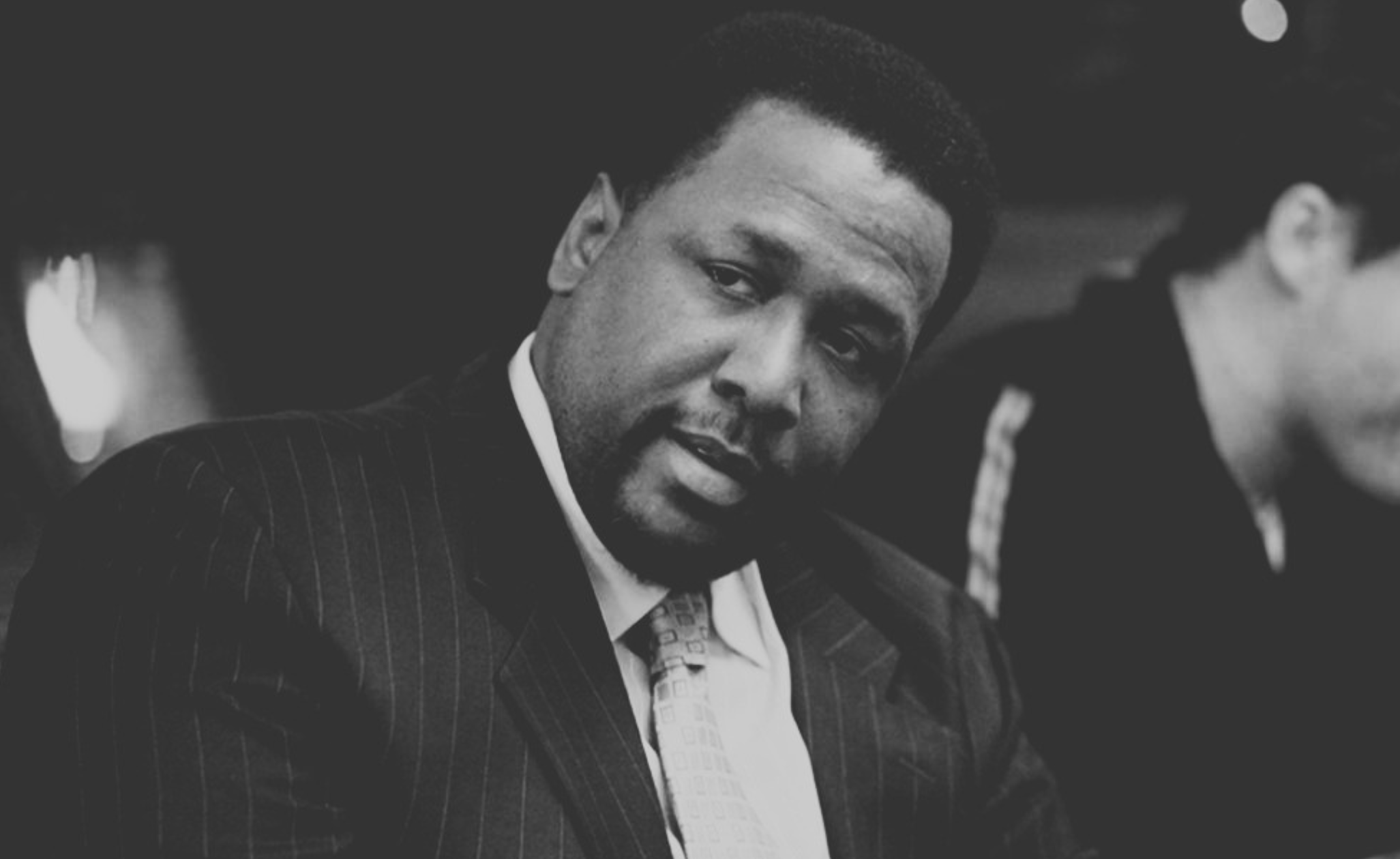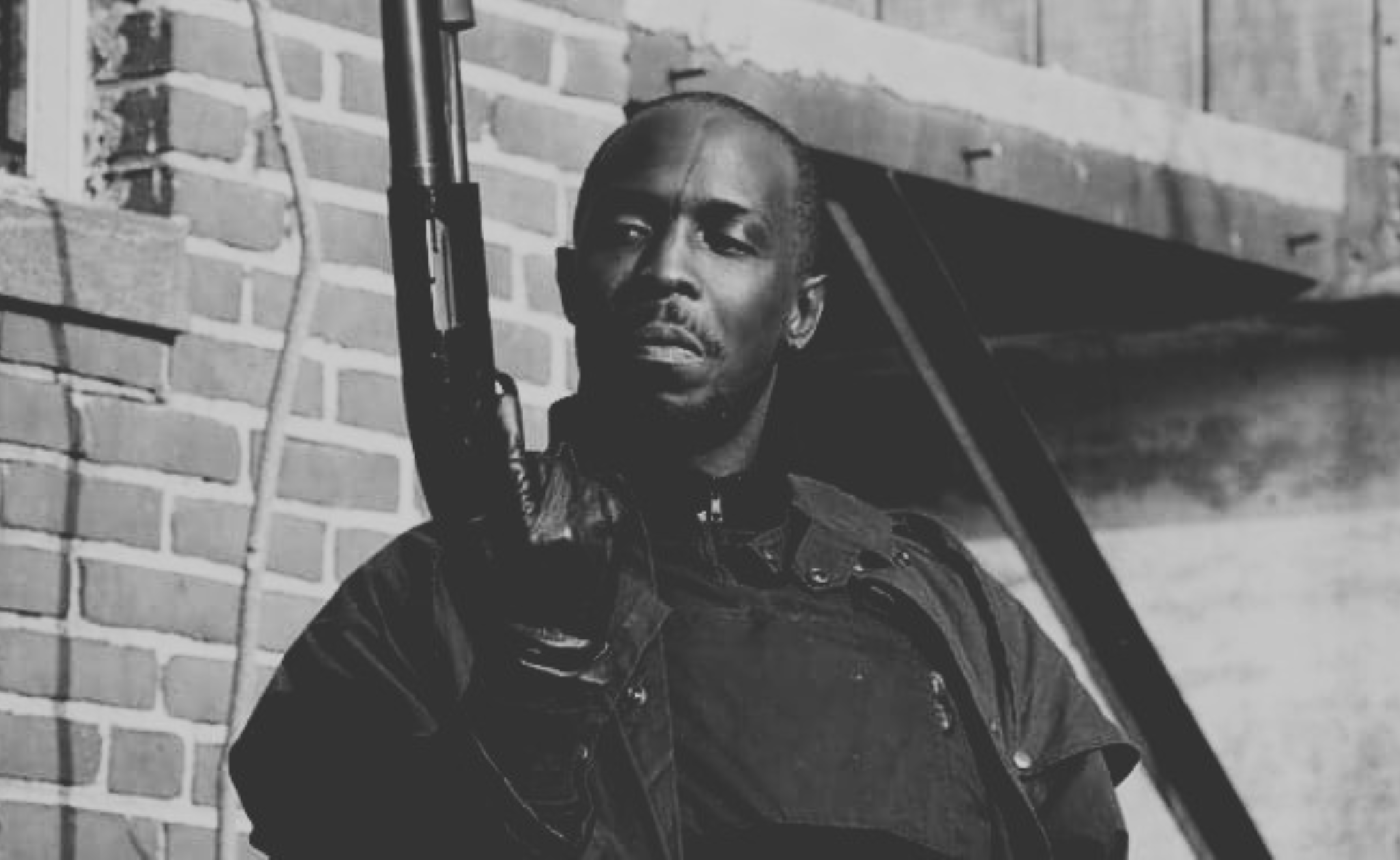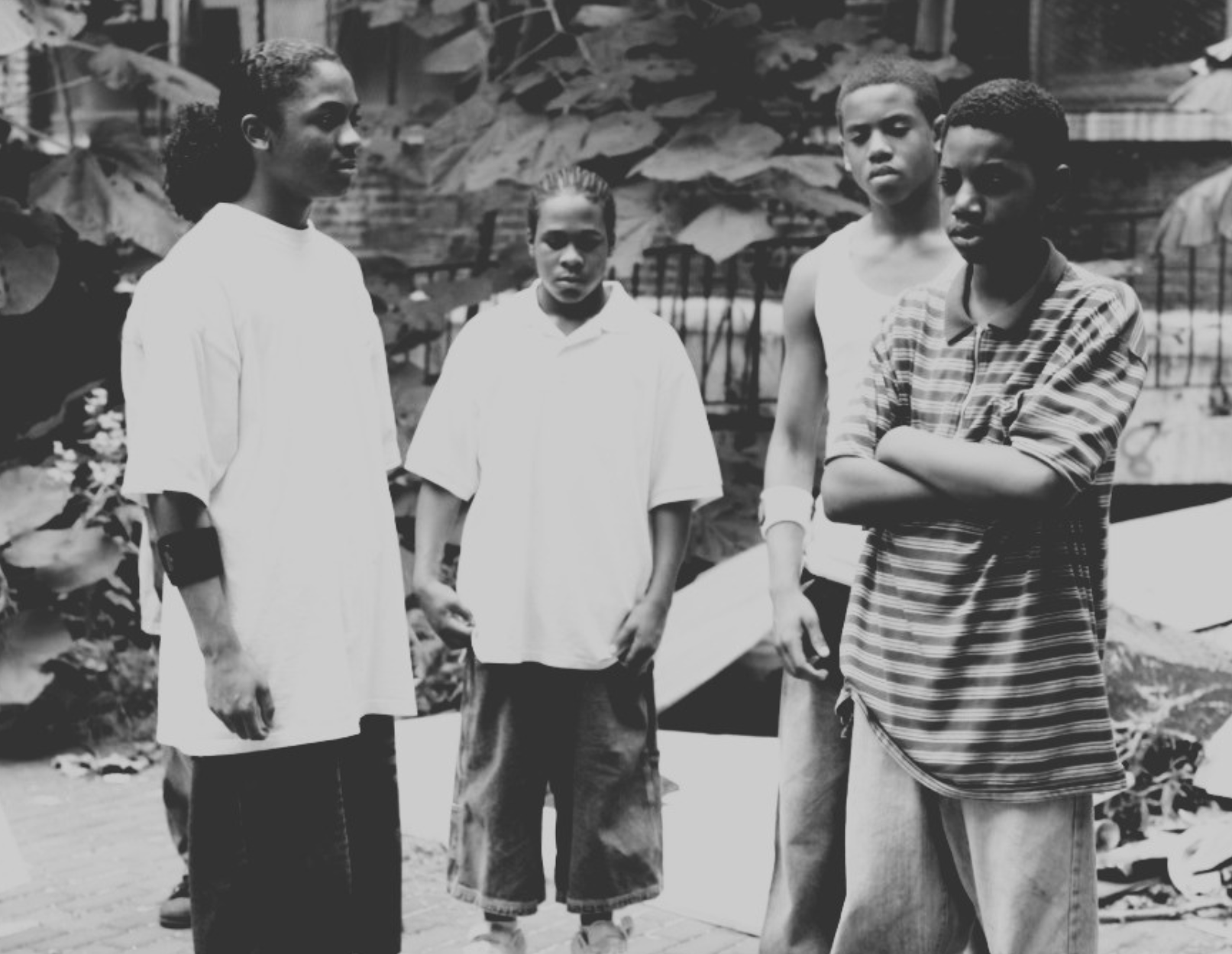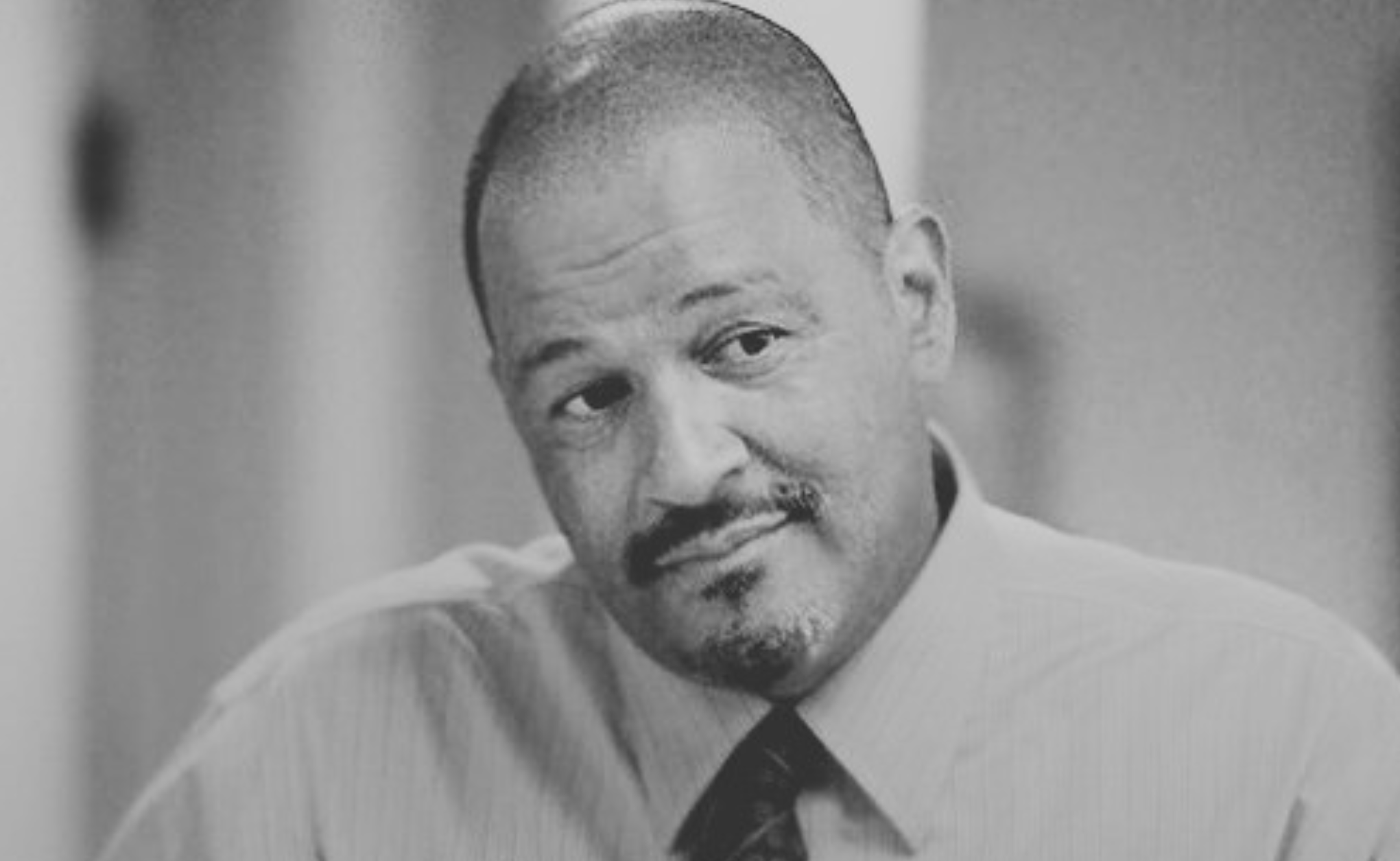‘The Wire’ is still the ‘King’.
The Wire, HBO (2002 - 2008). Image by C. A. Ramirez.
By Nick M. W.
HBO’s lauded and now 20-year-old crime drama tells a complex story about the drug trade in Baltimore.
From the shady longshoremen continue to bring heroin into the country; to the inner city drug kingpins who move the weight; to their corner boys who fail out of school and end up pushing the dope out on the streets; to the cops running a detail on them, hoping to catch them slipping and bag the kingpins; to the politicians who end up being the real movers and shakers in this game; to the journalists who push their narratives; to how the media sensationalizes crime to affect the city’s political climate. It’s all connected in The Wire.
An extraordinary cast bring dozens of characters to life who represented key players in each facet of Baltimore civics: the law, the streets, the city government, the ports, the school system, and the newspaper. (James) McNulty feels like the main character of the story—Dominic West is dialed-in as the well-meaning-if-not-arrogant-and-irritating detective—but The Wire is about Baltimore. One character alone can’t carry the scope of this story, so McNulty is just one important character driving the plot. It’s both an incredible achievement of ensemble acting and brilliant writing. Creator/writer David Simon and his co-writer, Ed Burns, are the masterminds behind the project.
They spent decades entrenched in parts of the same system that they examine in the series; the stories are literally pulled from the newspaper pages and police reports they wrote and filed. Simon was a long-time reporter for the Baltimore Sun, covering (guess what) the drug-trade in the city. Burns was a 20-year veteran of BPD. He was a homicide detective with that department, and he was also a teacher. These dudes give The Wire all of its cred from their hard-earned experience. Altogether, everyone involved with this series brought their “A” game and created a masterpiece.
I love The Wire, and I meant to publish something about this series back in June, around its 20th anniversary, but it had been a couple of years since I paid a visit to early-century Baltimore. I needed a refresher, and my terrible planning for this writing project made it impossible to meet that 20th anniversary deadline.
I’m grateful for another opportunity to binge this series because it never gets worse. Sure, it’s now an early-century period piece, but it’s also still a fascinating, and critical, review of the “War on Drugs” in a major American city.
Re-watching The Wire to celebrate its 20-year anniversary inspired me to write about the things I love the most about this incredible piece of creative work. Shout out to McNulty, Snoop, Stringer Bell, Brother Mouzone, and Lester Freamon. Ya’ll were fantastic, but didn’t make the cut.
Andre Royo as Reginald “Bubbles” Cousins in The Wire. HBO (Seasons 1 - 5, 2002 - 2008).
Reginald “Bubbles” Cousins
“I left a trail of fire behind me. Time going to make it right, I guess.” - Bubs
He owns the most riveting arc of the entire series. In most crime-dramas, the story of the addict is often left out because it doesn’t factor into the “cops vs. criminals” narrative. In The Wire, we get in deep with the addicts because they represent the final product of the drug trade in Baltimore.
We meet Bubs in Season 1, and he’s got skin in the game. He’s been using for years, and he knows the streets of West Baltimore well. He gets involved with Detective Kima Griggs as she assists capturing intel—running the “red hat” tactic.
West Baltimore is a dangerous place. As the series progress, we journey with Bubs as he further descends into his addiction while trying to survive living on the streets. Bubs is always involved with some shit; he’s dodging thugs who assault and rob him; he’s stealing shit to pay for his high; he’s trying to stay clean in an impossible situation.
He loses friends to addiction, and he plays a role in the poisoning death of a homeless kid he took under his wing, Sherrod. He tried to hang himself after that while he was in police custody. I didn’t think Bubs was going to survive the end of the series.
But he makes changes in his life, with the help of mentors and sponsors, and he proves that you can overcome anything in life if you absolutely want to do it. The final shot of him sitting to eat with his sister and her children, finally being invited up from the basement in which she kept him locked (it sounds worse than it was), is the most beautiful shot in a show that was filled with grim authenticity. Andre Royo’s portrayal of Bubs stands out as the best acting in the series. It was so good that a local junkie in Baltimore once approached Royo while they were filming to give him some dope because it looked like he could use a fix.
Wendell Pierce as Detective William “Bunk” Moreland in The Wire. HBO (Seasons 1 - 5, 2002 - 2008).
Divergent Paths: Bunk and Omar
Bunk Moreland
“Shit is like war, ain’t it? Easy to get in, hell to get out.” – Bunk Moreland
The straight man to Jimmy McNulty’s wild card nature, Bunk Moreland brought humor and history to BPD. He is one of the city’s native sons, so his roots intertwine with other characters, like Omar and Prop Joe. He remembers the “back in the day” ways. He’s also good po-leece and a good partner. When McNulty goes off the rails with his serial killer idea in Season 5, Bunk doesn’t rat him out. He lets McNulty do himself in.
I love his humor and his style—the way he carries himself, smoking a cigar and talking shit. I also love who Bunk is, the representation of one side of the coin of fate for a black man who grew up in Baltimore. He grew up in the same neighborhood and went to the same school as Omar, but he made different choices and literally ended up on the opposite side of the law, and of morality.
The late Michael Kenneth Williams as Omar Little in The Wire. HBO (Seasons 1 - 5, 2002 - 2008).
Omar Little
“A man gotta have a code.” – Omar Little
Based on stick-up men Ed Burns knew from his time as a [name] detective, Omar is a criminal—another product of the Baltimore inner-city system who landed on the opposite side of the law from Bunk. He robs drug dealers and is an absolute threat to anyone who stands in his way, but he doesn’t curse, and he still takes his grandma to church on Sundays. He can be violently aggressive, but he lives by a code that prevents him from doing things like shooting at his enemies’ grandmothers when they’re coming out of church. This an old-school code of the streets, and it is the code that Omar and Bunk discuss in Season [4]—one of the best moments of the series. I respected Omar for his code even though it’s ironic. It set him apart from other characters like him, and it made him more dangerous for the corner boys and stash houses. Omar is the archetype of a classic stick-up man, but he was given so many dimensions
As he lived by his code, he died by it, too. He kept robbing the drug dealers until one of them, Marlo Stanfield, took exception to Omar’s brash robbery of the illegal card game, and he put in work on Omar’s people. Omar had left the state and was chilling in Puerto Rico with his lover and a whole lot of Marlo’s money when he got word that Butchie had been killed. Omar had a code, and Marlo violated it.
Out for blood, thirsty for revenge, Omar was drawn back to Baltimore where he met his fate at the hands of a corner boy inside of a corner store. The game is wild like that.
Left to right: Julito McCullum as Namond Brice, Maestro Harrell as Randy Wagstaff, Tristan Wilds as Michael Lee, and Jermaine Crawford as Duquan “Dukie” Weems in The Wire. HBO (Season 4, 2006).
The Corner Boys
“Lambs to the slaughter here.” - Marcia Donnelly
With all due respect to the Barksdale corner boys we were introduced to in Season 1, the corner boys I’m referring to are Namond, Mike, Randy, Duquan, Kenard, and Donut. In Season 4 of The Wire, the best of the series, we are introduced to a group of friends from West Baltimore about to start 8th grade. We follow them throughout the school year as the events that unfold pull the crew in different directions.
The Wire is a Greek tragedy for modern times, and Season 4 is an interpolation of Seven Against Thebes that replaced Eteocles and Polynices with the group of friends. The impressive thing about this season is you see how these kids get chewed up by both the institutional systems and the streets, foreshadowing who they will likely become as grown men: the Avon Barksdales, the Omar Littles, Bubs, and in Namond’s case, the “Bunny” Colvins. By the end of Season 4 and the end of middle school for the crew, they have scattered into different lives, effectively ending their childhood. It’s a painful season to watch.
As Season 5 unfolds, we get to follow Mike and his evolution as the next version of Omar. Mike is embraced by Marlo and his crew as a young hitter, the next generation of enforcers for the Stanfield Crew. He has to abandon his childhood overnight, something that is more common than not in urban school districts, but he doesn’t abandon his code. Like Omar, Mike doesn’t use violence as a tool of intimidation. It is a means to an end, sometimes, but Omar isn’t a killer.
Mike earns his way into the crew by pulling off hits, none more significant than laying Bodie out on the corner (Bodie’s last stand). But, the shit that Marlo has Chris and Snoop do conflict with his code, and it ultimately leads to his falling out with Marlo and Co. Mike has to go on the run for a little while, so he sends his kid brother to stay with his aunt in [the suburbs] and leaves Duquan to fend for himself. Our final glimpse of Mike before the series concludes shows him and a partner robbing a stash house, alluding to his evolution as the next Omar.
Because Mike took his buddy Duquan in after “Dookie’s” drug addicted family, we get to follow Duquan’s character as he eventually falls into addiction at the end of the series after failing to find a safe place to land after the crew disbands. For a minute, at the beginning of Season 5 when Dookie was trying to find a job, it seemed like it was possible that he might be okay, but this is The Wire, where things usually have grim endings. Once he is left to fend for himself without a support system, it was inevitable that Dookie would end up like his parents, like Bubs.
The most painful moment in the series is in the final moments of Duquan’s arc when we get a glimpse of him shooting heroin; it’s a couple scenes earlier when Dookie visits Presbo and lies to him so he can get money for drugs.
Chris Bauer as Frank Sabotka in The Wire. HBO (Season 2, 2003).
Frank Sabotka
“You know what the trouble is, Brucey? We used to make shit in this country, build shit. Now we just put our hand in the next guy’s pocket.” - Sabotka
Season 2 often gets criticized as the worst of the series because a lot of people didn’t find the Port interesting, but that’s folly*. It was fascinating to see how the drugs made it to the streets and who is responsible for it.
A big part of that story line was Frank Sabotka, the Secretary-Treasurer of the Brotherhood of the Stevedores (IBS Local 1514), he had tremendous influence over the union. As a cargo-checker at the Baltimore docks, he moved contraband for The Greek, a mysterious Baltimore crime boss, from the ports and eventually to the streets. He used the money he made off that arrangement to take care of his union guys.
As it goes, Frank got deeper into some shit. One of the containers that he moved off a ship for The Greek happened to contain about a dozen young women being brought into the country for illegal sex work. Those women ended up suffocating to death. They’re discovered in the container while it sits at the port, which happens to coincide with Sabotka pissing off BPD Major Stan Valchek over some mosaic window placement at a church (no joke). Valchek didn’t take kindly to that insult, so he put a detail on Sabotka, and sure enough they caught him with his hand in the cookie jar.
Despite a Herculean effort on his part to save his son and nephew from a longer prison sentence; to try to save the port for another generation of Stevedores; to take care of all the guys in his local; Sabotka is killed by The Greek no thanks to a fucking mole in the FBI who tipped off The Greek to Frank’s plea bargain. Sabotka died trying to protect the livelihood of the Port of Baltimore, and in a way is the personification of the death of the docks.
Clark Johnson as Augustus Haynes in The Wire. HBO (Season 5, 2008).
Augustus Haynes
The heart of The Baltimore Sun, City Desk Editor Gus Haynes tried to fight the good fight—one that stood for integrity. He learned that his Managing and Executive editors didn’t gave a fuck about whether or not the ambitious young reporter, Scott Templeton, was telling the truth in his coverage of the homeless serial killer because the narrative was a juicy one.
Clark Johnson, who also directed several episodes of The Wire, played Gus with cynicism and witty humor, and he effortlessly conveyed the passion this dude had for The Sun and for his contribution to its success, which at this point in the show’s history is a daunting task because newspapers were beginning to die back then.
In the classic tradition of a good person doing the right thing, Gus is demoted to the copy desk while Templeton ends up winning a Pulitzer and The Sun gets some shine. Sounds about right.
Gus seemed to enjoy the “push/pull” dynamic he had with his writers, and I enjoyed watching him steal every scene he was in.
Wood Harris as Avon Barksdale in The Wire. HBO (Seasons 1 - 3, 2002 - 2004; Season 5, 2008).
Avon Barksdale
“Yeah, I ain’t no suit-wearin businessman like you. You know, I’m just a gangsta, I suppose. And I want my corners.”
Avon lived by the code of the streets and was the archetype of a gangster. He fought his way to the top of the West Baltimore drug trade, and he fought as it all got taken away. He wasn’t afraid to get blood on his hands, but, again, he was measured in his wrath because he abided by a code.
They say that when you’re involved in a life of crime, you have one of two ways out: a) you get killed or b) you go to jail. Avon was hit with option “b” twice. He got caught up in the wiretap from Season 1 and was paroled after a couple of years. He ended up back in prison after his childhood friend and long-time business partner, Stringer “El Raton” Bell, provided BPD with information that lead to Avon’s arrest. Since he was out on parole, he was sentenced to serve out the remaining 5 years on his original charge.
Divided as they were, the Barksdale Crew wouldn’t have been able to hold of Marlo from taking their corners if the leadership hadn’t turned on themselves. Stringer left Avon with no choice, and Avon made the gangster call. Wood Harris was a long way from Julius Campbell in Remember the Titans. He played a superb drug kingpin.
American gospel group The Blind Boys of Alabama. BlindBoys.com.
The Season 1 Theme Song
I was today years old when I learned that Tom Waits not only wrote “Way Down In The Hole”, and this version is also used as the Season 2 theme. In my opinion, it’s inferior to The Blind Boys cover. This might be a controversial take because I’ve seen a lot of hate online for The Blind Boys of Alabama’s version. I don’t get it.
This version sounds like a hymn from a bygone era. It is in fact an early-century recording except that “early-century” is the 21st. The Blind Boys, friends since they were actually little boys, released this track in 2001. It feels more spiritual than other versions of the song that were used as the opening for The Wire.
I think the show-runners felt the same way because they bookend the series with The Blind Boys version of the song, giving the story a sense of closure.
Shout out to The Neville Brothers version, though. They recorded the next best version.
There it is, The Wire, a masterpiece then and still 20 years later.










